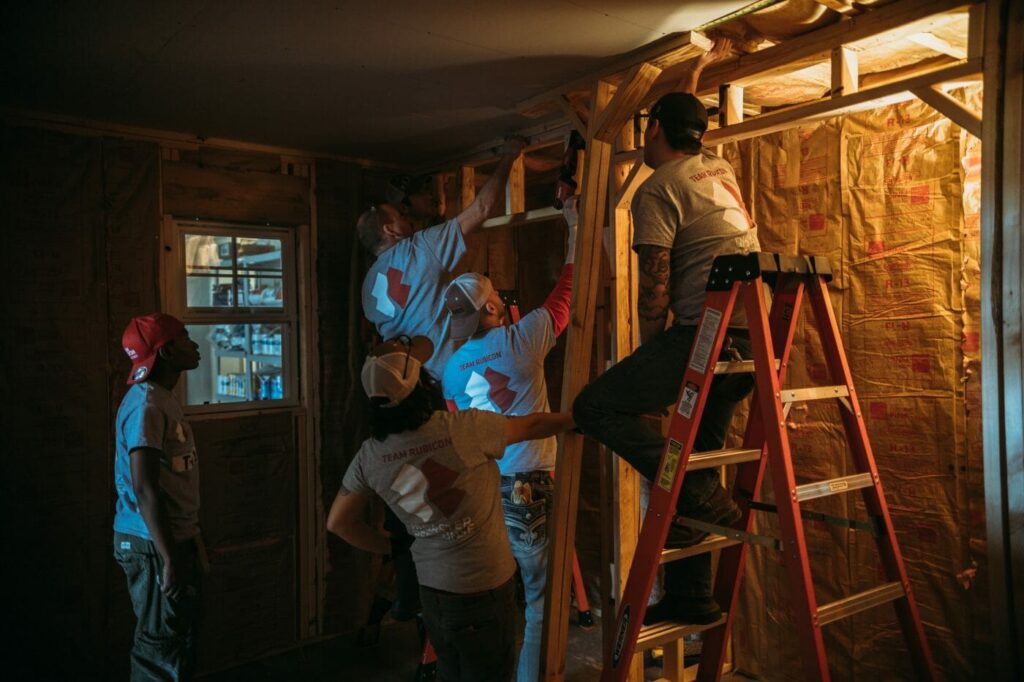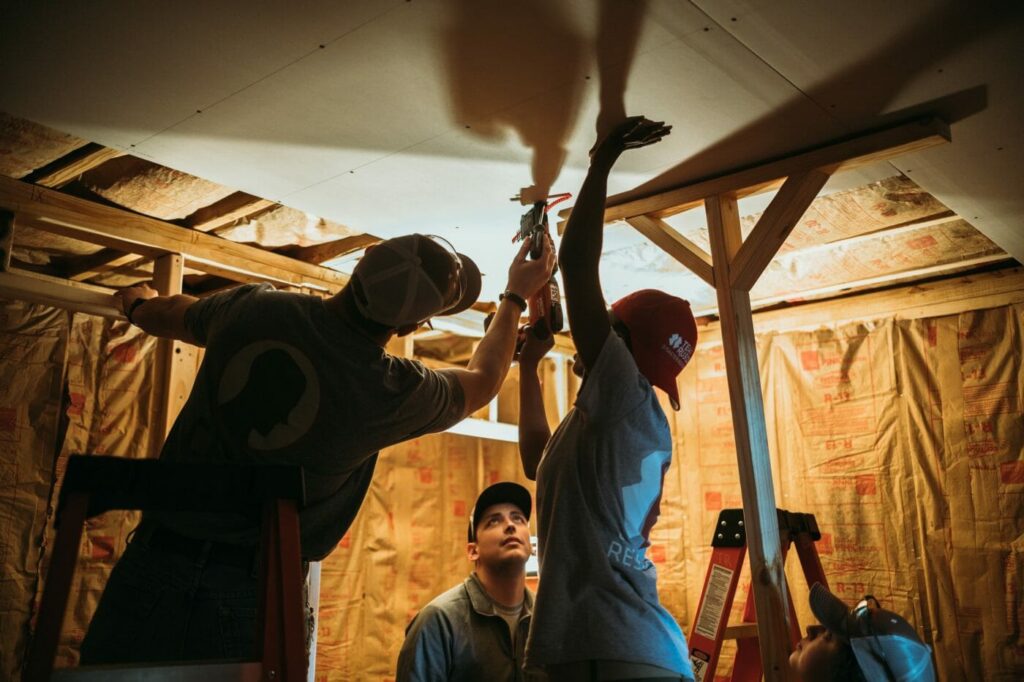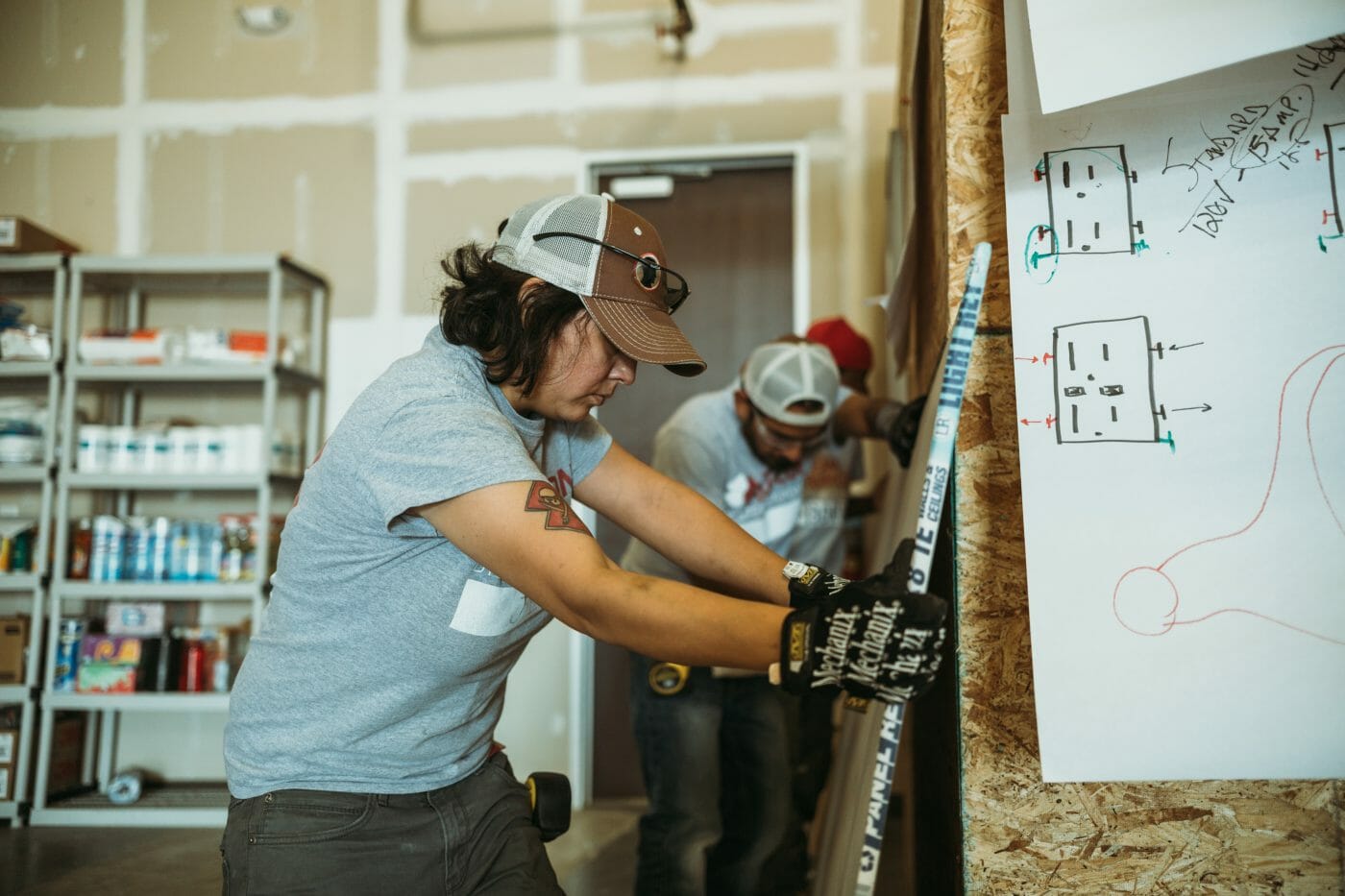Team Rubicon launched a long-term recovery pilot in the wake of Hurricane Harvey’s massive impact on the Texas Gulf Coast. The organization has committed to rebuilding 100 homes by 2020. Can you describe some of the steps, hires, and training it’s taken to spin up this undertaking?
Organizationally, we began preparing for our rebuilding pilot less than a week after Harvey hit the coast. The initial push was to outline our program, develop budget models, and hire in a subject matter expert to set up the structure. As we started looking at overall staffing plans, we immediately turned to our Clay Hunt Fellows Program. The fellowship is our in-house leadership development program and has become a go-to for talent. We selected 12 veterans for Cohort 6 to build out our site supervisor ranks.

Team Rubicon also hired a construction manager, project manager, two superintendents and two lead carpenters. At the moment, we’re putting our new site supervisors through a four-week construction practice and leadership development training course. We’ve also partnered with Procore and Hilti OnTrack to provide best in practice construction management technology to drive our efforts.
What role will Cohort 6 of Clay Hunt Fellows play?
Twelve veterans will play a critical role in our rebuilding efforts. Eight of the Fellows will serve as site supervisors, leading the day-to-day construction process for each house we complete. Their roles will include daily management of our volunteer labor force, management of subcontractors, material orders, tool and other asset management and providing daily feedback to our project management team to ensure we stay on time and on budget.

The remaining five Fellows will provide the back office project management support to keep the engines running. Their roles will include scheduling, estimating, material purchasing, volunteer coordination and oversight of our local office finances. The training we’re providing them is an investment in both their futures as well as the future rebuilding efforts of Team Rubicon.
What led you to apply for the role of Senior Manager for the Houston Rebuild?
Team Rubicon has been a large part of my life since 2012. In November 2012, I deployed to Union Beach, NJ, as a volunteer on my first Team Rubicon operation in response to Superstorm Sandy. Since then, I’ve served in several Team Rubicon volunteer leadership roles, served as the State Chair of the Delaware VOAD and was selected to participate in Cohort 5 of the Clay Hunt Fellows program.
The Clay Hunt Fellowship was the first time I was truly able to use my experience as a general contractor to identify an organizational need and develop a program to address it. In partnership with Case Construction, the US Fish & Wildlife Service, Team Rubicon’s training team, and a few top-notch volunteers, we created a heavy equipment training program designed to meet three stringent criteria: increase the safety of our heavy equipment use on operations, develop a training program our volunteers could teach, and provide real-world training our members could use for real-world employment. In the 18 months that followed, we successfully trained nearly 200 operators and instructors and safely deployed heavy equipment on multiple operations.

I was in Beaumont, TX, as the task force leader of our heavy equipment response to Hurricane Harvey in November of 2017 when the construction manager position was posted. For me, this was the alignment of the stars. I’ve been a general contractor for most of my life, spent four years as the Chair of a State VOAD, working through the long-term recovery plans and processes, represented Team Rubicon on the National VOAD housing and long-term recovery committees, and had just completed the development of a fully built national training program. It was a big step to pick up and move across the country, but I can’t think of a place I’d rather be.
Can anyone help rebuild homes in the Houston area with Team Rubicon?
Absolutely. We’ll have volunteer needs every day for the next two years and anyone who wants to help is invited. Head here to find answers to commonly asked volunteer questions. You may also email me if you have other questions.
Based on your time engaging with the Houston community, what would you want to share about your interactions?
I’m really just getting my feet wet down here, but the community has welcomed us with open arms. There’s a tremendous need here. Our team is both excited to help and humbled by the stories we hear. We’re going to bust our asses for the next two years to put at least 100 homeowners back in their homes.




